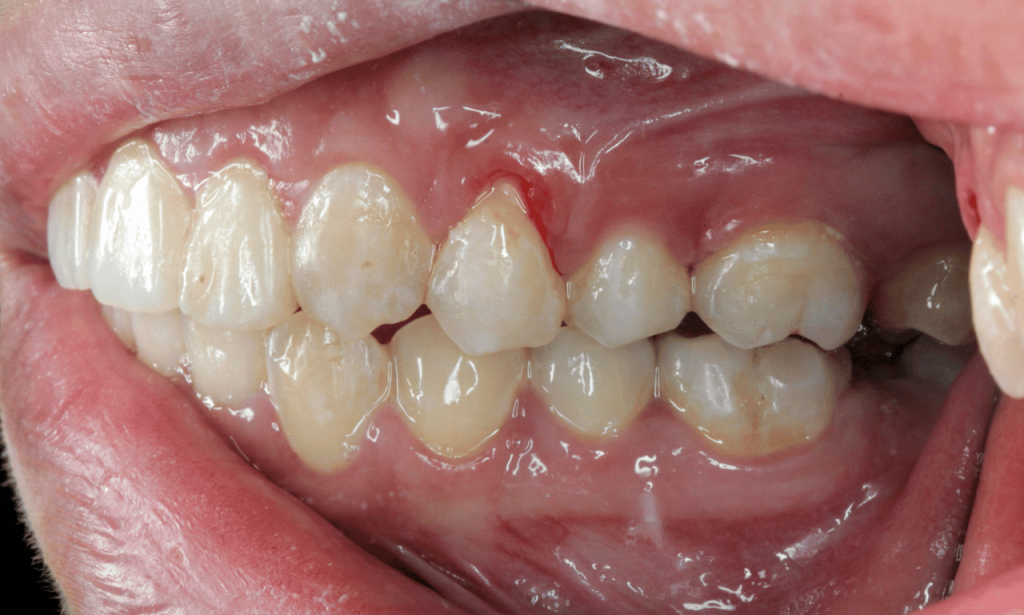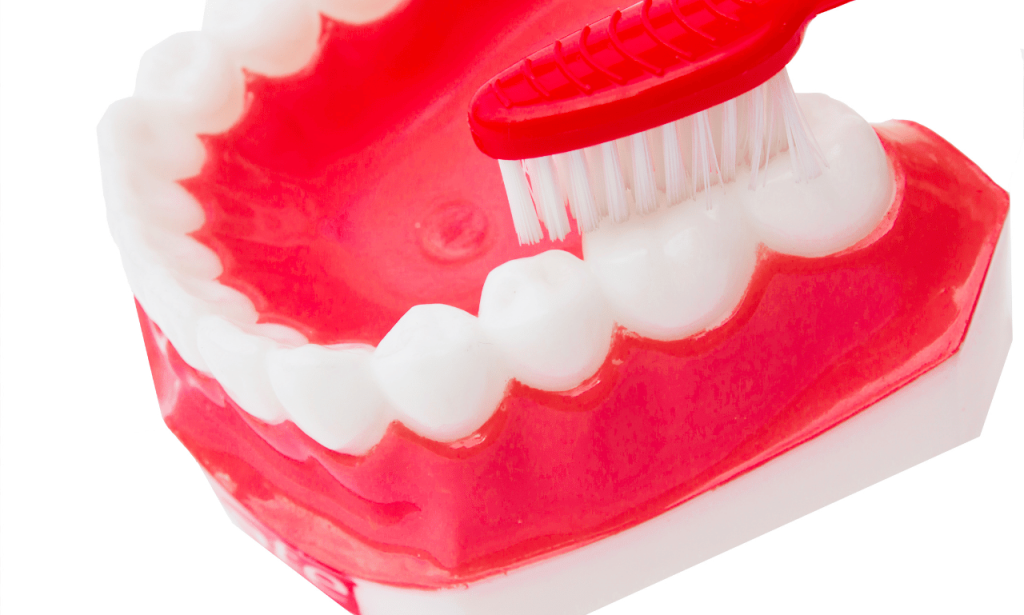The question is Why Do My Bottom Teeth Hurt: Causes and Top Treatments. Additionally, we’ll touch on prevention strategies that will promote long-term oral health.
Tooth pain can be debilitating, and the causes for discomfort in the bottom teeth are vast. From gum disease to tooth decay, sensitive teeth to sinus infections, understanding the potential triggers can help determine the best course of action for relief.
When experiencing bottom teeth pain, it is essential to understand that various factors are at play. The key to appropriate treatment lies in identifying the underlying cause, which could be anything from gum disease to sinus infections or even jaw clenching.
Common Causes of Bottom Teeth Pain

Gum Disease (Periodontal Disease)
Gum disease, also known as periodontal disease, is one of the leading causes of tooth pain. It occurs when bacterial infections inflame the gum tissue around the teeth. In its early stages, gum disease, also called gingivitis, causes swollen and bleeding gums.
If left untreated, it can progress to periodontitis, which affects the bone and soft tissue supporting the teeth. Bottom teeth, especially the lower front teeth, can be particularly sensitive to gum disease due to their proximity to the gum line.
Treatment: Good oral hygiene practices, such as regular brushing and flossing, can prevent gum disease in its early stages. In more advanced cases, dental professionals may recommend scaling and root planning to remove plaque and tartar buildup below the gum line.
Tooth Decay (Dental Caries)
Tooth decay occurs when sugary or acidic foods cause enamel erosion, leading to cavities. Cavities expose the underlying layer of your teeth (dentin), which is sensitive and can cause pain, particularly in the bottom teeth, as these are more likely to suffer from cavities due to frequent contact with sugary foods.
Treatment: Cavities can be treated by filling the decayed portion of the tooth. In severe cases, a root canal may be necessary to remove infected tissue. Avoiding sugary foods and maintaining good oral hygiene can prevent future decay.
Tooth Sensitivity
Tooth sensitivity occurs when the enamel wears down, exposing the dentin or tooth roots. This can make your bottom teeth sensitive to temperature changes, sugary foods, or even air exposure.
Treatment: Desensitizing toothpaste can help reduce sensitivity. Additionally, a dental professional might apply fluoride treatments to strengthen the enamel and reduce discomfort.
Sinus Infections
Although sinus infections typically affect the upper teeth, the pressure from inflamed sinuses can sometimes cause pain in the bottom teeth due to their proximity to the sinus cavities. This is especially true if the roots of your upper teeth extend close to your sinuses.
Treatment: Treating the sinus infection with decongestants or antibiotics may relieve the pressure, reducing tooth pain. A dental examination can rule out any other underlying issues.
Cracked or Fractured Tooth
Cracked teeth can cause sharp pain, especially when chewing or applying pressure. The cracks may expose the tooth’s inner nerves, leading to sensitivity. A cracked tooth in the bottom jaw can be particularly uncomfortable.
Treatment: Depending on the severity of the crack, treatments range from dental bonding to crowns. In severe cases, a root canal or extraction may be necessary.
Gum Recession
Gum recession occurs when the gum tissue pulls back, exposing the roots of your teeth. This can make your bottom teeth especially sensitive and more prone to pain.
Treatment: Gum grafting, a surgical procedure, can restore the gum tissue. Regular dental check-ups can also help manage gum recession.
Root Canal Infections
If the nerve of the tooth becomes infected, it may cause significant pain in the bottom teeth. This can be the result of untreated cavities, trauma, or deep decay.
Treatment: A root canal procedure removes the infected tissue, relieving pain and saving the tooth. In severe cases, an abscess may form, which will require draining.
Tooth Abscess
An abscessed tooth is a painful condition caused by bacterial infections leading to pus buildup at the root of the tooth. It can cause severe pain in the bottom teeth and even affect the jaw and gums.
Treatment: Antibiotics, draining the abscess, and performing a root canal or extraction are common treatments.
Temporomandibular Joint Disorders (TMJ Disorders)
TMJ disorders cause jaw pain, which can radiate to the teeth, especially the lower jaw. This can result from excessive pressure, clenching, or grinding the teeth (bruxism).
Treatment: Using a mouth guard at night can prevent teeth grinding. In some cases, physical therapy or dental appliances may help realign the jaw and relieve the discomfort.
Orthodontic Treatment
Bottom teeth pain is common during orthodontic treatment, such as braces. This is due to the extra pressure applied to the teeth to realign them.
Treatment: Over-the-counter pain relievers and orthodontic wax can provide temporary relief. The discomfort usually subsides as your teeth adjust.
Other Contributing Factors
- Enamel Erosion
Acidic foods, such as citrus fruits and sugary beverages, can wear down tooth enamel, causing sensitivity and pain in the bottom teeth.
Prevention and Treatment: Limit your intake of acidic foods, and use a toothpaste designed to strengthen enamel. Regular dental care will help prevent enamel erosion. - Bite Issues
Misaligned teeth can cause uneven pressure on the bottom teeth, leading to discomfort. Bite issues are common in people undergoing orthodontic treatments.
Treatment: Orthodontic interventions such as braces, Invisalign, or dental bonding can correct the bite, relieving the pressure. - Cluster Headaches and jaw-clenching
Cluster headaches can cause facial pain, including tooth pain, due to their proximity to the trigeminal nerve, which is connected to your teeth. Similarly, jaw clenching can put undue stress on your bottom teeth, leading to soreness.
Treatment: Addressing the underlying cause of the headache or using a night guard to prevent clenching can alleviate the pain. - Viral Infections
Certain viral infections can affect the gums and soft tissue around the bottom teeth, causing inflammation and discomfort.
Treatment: Antiviral medications and proper dental care can help reduce pain and prevent the infection from spreading. - Wisdom Teeth
The eruption of wisdom teeth can lead to extra pressure and crowding of the bottom teeth, which often causes pain.
Treatment: If wisdom teeth are causing severe discomfort, a dental professional may recommend extraction.
Preventive Measures for Bottom Teeth Pain
- Good Oral Hygiene
Regular brushing and flossing are essential for preventing gum disease, tooth decay, and enamel erosion. Using fluoride toothpaste can strengthen enamel and prevent sensitivity. - Regular Dental Check-ups
Routine dental visits allow early detection of any issues, such as cavities or gum disease, before they worsen. - Mouth Guards
If you suffer from teeth grinding or jaw clenching, wearing a mouth guard at night can protect your bottom teeth from excessive pressure and prevent pain. - Dietary Adjustments
Limiting sugary, acidic, and cold foods can help prevent tooth decay and enamel erosion, reducing your risk of sensitivity and pain.
Treatment Options for Bottom Teeth Pain

- Scaling and Root Planing: For gum disease, this deep cleaning procedure removes plaque and tartar from below the gum line.
- Root Canal Therapy: When the nerve of the tooth is infected, a root canal can relieve pain by removing the infected tissue and sealing the tooth.
- Dental Fillings and Crowns: These are used to treat cavities and restore the tooth structure, preventing further decay and reducing sensitivity.
- Night Guards: For people with bruxism, night guards prevent teeth grinding and alleviate jaw pain.
- Tooth Extraction: If a tooth is severely decayed or impacted, extraction may be necessary to prevent further complications.
Conclusion
Bottom teeth pain can arise from a variety of factors, including gum disease, tooth decay, enamel erosion, sinus infections, and more. Identifying the underlying cause is crucial for determining the appropriate treatment and ensuring long-term relief.
Maintaining good oral hygiene, scheduling regular dental check-ups, and adopting preventive measures such as using mouth guards and adjusting your diet can help you avoid future discomfort and promote overall oral health.
For more detailed information on maintaining a pain-free smile, explore this ProDentim resource.


